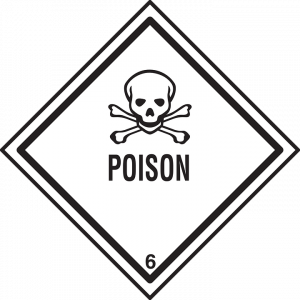
Nearly every Indiana household is full of items that can be lethal – from bug spray to hairspray, and furniture polish to lawn fertilizer.
Stored improperly, some products can cause injury or even death if anyone ingests, smells, or spills them on skin or clothing.
Dr. Blake Froberg – medical director at the Indiana Poison Center – said liquids like antifreeze and window-washer fluid may look like sports drinks to young kids and can have some very harmful effects.
“Certain lamp oils,” said Froberg, “with the summer coming up, a lot of people will have tiki torches. And that lamp oil that’s used in tiki torches – to a young child, that can look like apple juice – can have very harmful effects to somebody’s lungs if they get into that.”
Symptoms of poisoning include nausea, vomiting, diarrhea, and rashes.
The Indiana Department of Health suggests storing household chemicals with proper labeling and tight lids, and periodically checking those containers. Froberg added that they should be in locked cabinets inaccessible to kids.
America’s Poison Centers data show in Indiana, a poisoning case is reported about every 11 minutes.
Medications can also be dangerous, with nearly 68,000 cases of kids ingesting basic analgesics or painkillers in one recent year, nationally.
Froberg said it isn’t just prescription drugs to be concerned about.
“Acetaminophen, which is often sold as Tylenol,” said Froberg, “aspirin, diphenhydramine, often sold as Benadryl. So, you want to pay attention to not only your prescription medications but also the over-the-counter medications.”
Froberg pointed out that child-resistant caps on medications may slow them down, but given enough time, a child can figure out how to remove them.
America’s Poison Centers data show 44% of Indiana children age 5 or younger have been involved in a poison-related incident – and 95% of those occur at home.
(Story by our news-gathering partners at Indiana News Service)



